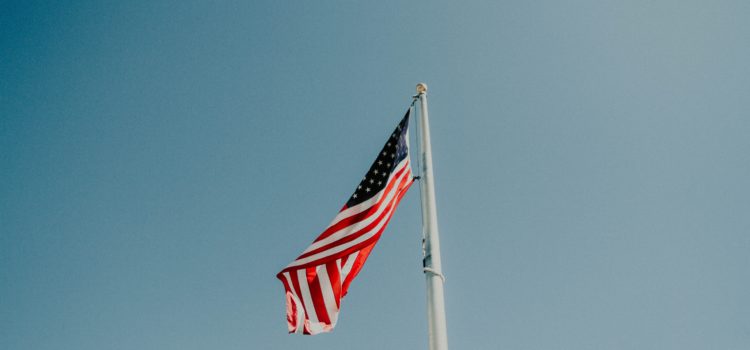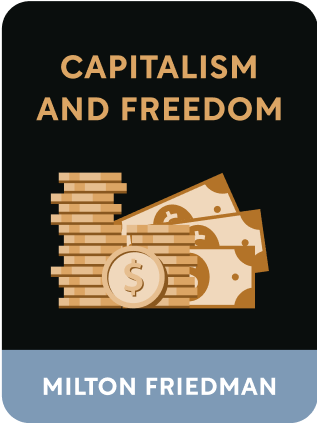

This article is an excerpt from the Shortform book guide to "Capitalism and Freedom" by Milton Friedman. Shortform has the world's best summaries and analyses of books you should be reading.
Like this article? Sign up for a free trial here .
What is the role of government in a free society? How can government serve the people while still allowing them economic freedom?
Milton Friedman’s Capitalism and Freedom argues that without government interference, people and society will be allowed to flourish. According to Friedman, the role of government in a free society is to be uninvolved.
Read more about the role of government in a free society.
The Proper Role of Government in a Free Society
So what is the role of government in a free society? Despite the threat of government power, even those most committed to free-market principles must accept the idea that there are some societal functions that the market is unable to perform, such as national defense, domestic security, and the enforcement of property rights. These functions are crucial to the preservation of economic liberty, and can only be performed by the public sector. Beyond these basic duties, governments also have a responsibility to:
- Curb the power of monopolies; and
- Provide those essential public services that confer broad-based social benefits and could not be efficiently provided by the private sector
Curbing Monopolies
One of the government’s most important responsibilities is to curb the power of monopolies. This is one role of government in a free society.
A monopoly occurs when a market for a particular good or service has only one seller. Because they make it impossible for buyers to find an alternative seller, markets dominated by monopolies cannot be considered free.
Because monopolies pose a threat to economic freedom, it is a legitimate exercise of government power to limit them or break them up.
Three Forms of Monopoly
There are three forms of monopoly:
- Unregulated private monopolies, in which a private firm has cornered the market and is allowed to operate unfettered;
- Regulated private monopolies, in which the government acts to eliminate competition in an essential market, like municipal power or water, often by subsidizing the sole authorized supplier (keeping the price of the good artificially low for the public); and
- Public monopolies, in which the government itself acts as the sole manufacturer and seller of a good or service.
All three forms involve the elimination of competition, and are therefore harmful to economic freedom. But, all things being equal, unregulated private monopolies are usually the least harmful. Regulated private monopolies and public monopolies use the coercive power of the state to enforce anti-competitive practices. Competition is literally illegal in such cases.
Monopolies and near-monopolies benefit from poorly designed features of the US tax code. For example, corporate, capital gains, and dividend taxes all disincentivize shareholders from putting corporate profits toward new investments. Because investors face a tax penalty when they sell stock or collect a dividend, it is often a better option to simply plow money back into an existing large company by purchasing more shares, thus increasing the stock price for shareholders. The effect is to protect large incumbent businesses by giving them the lion’s share of available capital, even when they have little productive use for it.
Neighborhood Effects
Governments also have a responsibility to provide those services that have strong neighborhood effects. Neighborhood effects arise when some individual economic activity confers benefits upon individuals whom it is extremely difficult to charge for their receipt of such benefits.
A good example is local parks. People who regularly walk through such parks, have views of them from their homes, or just happen to pass by them can reasonably be said to receive a benefit from them. But because the benefits of these local parks are so widely dispersed and difficult to assign a true “value” to, it would be infeasible and inefficient for a private owner of such a park to charge fees to everyone who derives enjoyment from them. Therefore, the public sector can more efficiently provide goods like local parks that confer widespread positive neighborhood effects.
Monetary Policy and Regulation of the Money Supply
Free-market principles also allow for some other, limited functions of government. One of these is the issuance of currency and the regulation of the money supply.
Commodity standards based on metals like gold or silver systems have proven unworkable due to their limited supply. Most economies therefore evolved to have governments issue paper money to facilitate transactions. As long as the government guarantees that official paper currency can be used as legal tender, it has value.
The Federal Reserve System
Central banks are government-chartered financial institutions that have the power to increase or decrease the supply and circulation of money in an economy, primarily through their control of interest rates. The American central bank is the United States Federal Reserve System (usually referred to as “the Fed”). But is this the proper role of government in a free society?
The Fed’s activities are meant to ensure that the banking system has the liquidity it needs to conduct business, as well as provide price stability throughout the economy. Nevertheless, control of interest rates vests a great deal of power in government and represents the most consequential intervention by the public sector into the market.
The Federal Reserve and the Great Depression
In light of this power, it is particularly important to look at the Fed’s failure to rescue the banking system in the critical early years of the Great Depression. As depositors began to worry about broader economic conditions in November 1930, they began to pull their money out of banks en masse. Banks struggled to meet these demands, beginning a series of disastrous bank runs. This was the moment when the Fed should have acted decisively to cut interest rates and pump liquidity into the system.
But instead, the Fed simply did nothing. The unwillingness to act led to the worst two-year period of economic contraction in US history.
Foreign Exchange
Governments also play a significant role in revaluing or devaluing their currencies relative to those of other countries. Both a strong dollar (one that has a high exchange rate relative to other currencies) and a weak dollar (one that has a low exchange rate relative to other currencies) have different advantages for different players in the economy.
A strong currency benefits importers of raw materials from abroad and consumers of foreign goods, because it enables them to purchase pounds sterling or yen or euros with fewer dollars, in turn enabling them to purchase more goods and services denominated in those currencies. A weak currency, on the other hand, benefits exporters, because it enables them to sell American goods and services cheaper in foreign markets, giving them a competitive advantage.
Systems that peg the value of a currency to a commodity (like gold) or to another currency tend to be harmful to economic freedom, because they require the government to impose heavy-handed controls over capital flows in and out of the country and restrict the freedom of individuals to conduct ordinary business transactions (because they have to maintain adequate stocks of gold or foreign currency to keep the ratios stable).
In a free society, competent individuals should face no restrictions on their ability to conduct transactions and make contracts. This is an important part of the role of government in free societies.
Floating Currency
Instead of this elaborate and carefully managed system of international currency pegging, countries should be free to let their currencies simply “float”—i.e., let the free market determine the value of currencies relative to one another.
The inflows and outflows of currency would always balance out under such a system—the seller of dollars would need to find a buyer willing to pay her in the equivalent value of foreign currency. Losses of domestic currency would by definition be offset by gains in foreign currency reserves.

———End of Preview———
Like what you just read? Read the rest of the world's best book summary and analysis of Milton Friedman's "Capitalism and Freedom" at Shortform .
Here's what you'll find in our full Capitalism and Freedom summary :
- The key principles from Milton Friedman's Nobel Prize-winning book
- Why capitalism functions best when it is freed from government restraints
- How forced redistribution schemes are morally unjust






